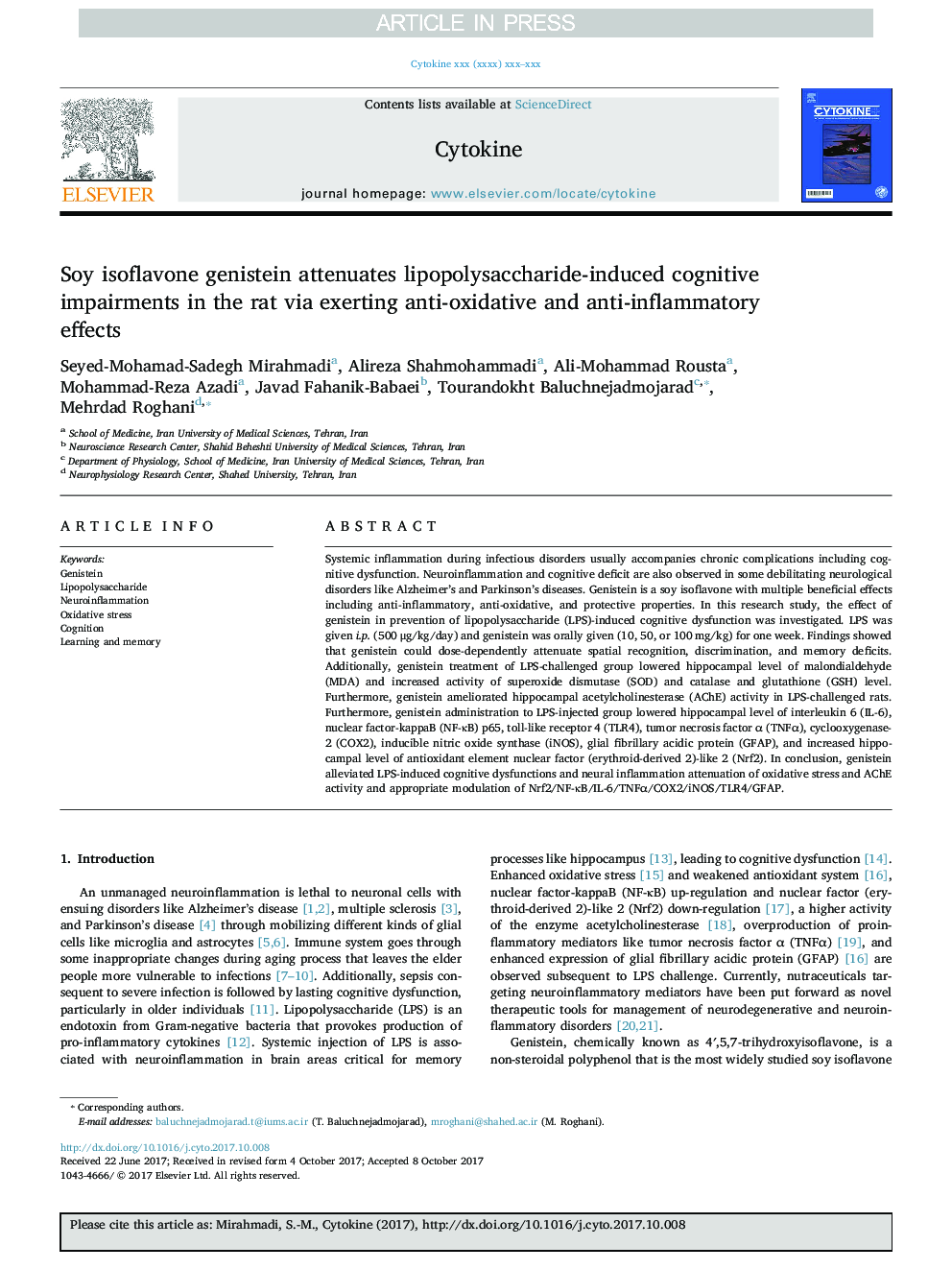| Article ID | Journal | Published Year | Pages | File Type |
|---|---|---|---|---|
| 8629118 | Cytokine | 2018 | 9 Pages |
Abstract
Systemic inflammation during infectious disorders usually accompanies chronic complications including cognitive dysfunction. Neuroinflammation and cognitive deficit are also observed in some debilitating neurological disorders like Alzheimer's and Parkinson's diseases. Genistein is a soy isoflavone with multiple beneficial effects including anti-inflammatory, anti-oxidative, and protective properties. In this research study, the effect of genistein in prevention of lipopolysaccharide (LPS)-induced cognitive dysfunction was investigated. LPS was given i.p. (500â¯Î¼g/kg/day) and genistein was orally given (10, 50, or 100â¯mg/kg) for one week. Findings showed that genistein could dose-dependently attenuate spatial recognition, discrimination, and memory deficits. Additionally, genistein treatment of LPS-challenged group lowered hippocampal level of malondialdehyde (MDA) and increased activity of superoxide dismutase (SOD) and catalase and glutathione (GSH) level. Furthermore, genistein ameliorated hippocampal acetylcholinesterase (AChE) activity in LPS-challenged rats. Furthermore, genistein administration to LPS-injected group lowered hippocampal level of interleukin 6 (IL-6), nuclear factor-kappaB (NF-κB) p65, toll-like receptor 4 (TLR4), tumor necrosis factor α (TNFα), cyclooxygenase-2 (COX2), inducible nitric oxide synthase (iNOS), glial fibrillary acidic protein (GFAP), and increased hippocampal level of antioxidant element nuclear factor (erythroid-derived 2)-like 2 (Nrf2). In conclusion, genistein alleviated LPS-induced cognitive dysfunctions and neural inflammation attenuation of oxidative stress and AChE activity and appropriate modulation of Nrf2/NF-κB/IL-6/TNFα/COX2/iNOS/TLR4/GFAP.
Related Topics
Life Sciences
Biochemistry, Genetics and Molecular Biology
Endocrinology
Authors
Seyed-Mohamad-Sadegh Mirahmadi, Alireza Shahmohammadi, Ali-Mohammad Rousta, Mohammad-Reza Azadi, Javad Fahanik-Babaei, Tourandokht Baluchnejadmojarad, Mehrdad Roghani,
